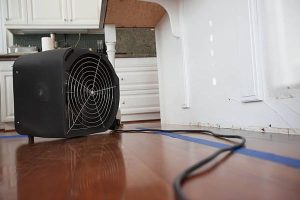The Impact of Hard Water on Your Heater and Repair Solutions
Hard water is a common issue that affects many homes. It refers to water that has high mineral content, primarily calcium and magnesium. While hard water isn’t harmful to your health, it can have severe effects on your household appliances, particularly your heater.
One of the main impacts of hard water on heaters is the buildup of scale. This happens when minerals in the hard water accumulate on the heating elements over time. The accumulation forms a layer of scale that inhibits heat transfer from the heater’s element to the surrounding water, making it less efficient and increasing energy consumption. In essence, this means you are using more energy for less heat output.
Another effect is corrosion caused by these minerals reacting with metal components within your heater system. Over time, this corrosion can lead to leaks or even complete failure of your heating system if not addressed promptly.
The impact isn’t just limited to inefficiency and potential damage; it also increases maintenance costs significantly. Regular descaling becomes necessary to keep your heater running efficiently and prolong its lifespan.
Thankfully there are several solutions available for dealing with hard water issues in relation to heaters. One such solution is installing a whole-house water softener system Quincy which works by replacing calcium and magnesium ions with sodium or potassium ions through an ion exchange process before they reach any appliances in your home including heaters.
Another solution would be regular descaling or flushing out the heater tank regularly using vinegar or specially formulated descaler products available in stores. This helps remove existing mineral deposits thus restoring efficiency while preventing further build up.
In cases where corrosion has already occurred due to prolonged exposure to hard water, repairs may be necessary which could involve replacing corroded parts or even getting a new unit altogether depending upon extent of damage done.
It’s important however not just rely solely on reactive measures like repairs but also take proactive steps towards preventing problems from arising in first place through regular maintenance checks and installing preventative systems like aforementioned whole-house softeners if you live in an area with hard water.
In conclusion, while hard water can have significant impacts on your heater including causing scale buildup, corrosion, inefficiency and increased maintenance costs; there are several solutions available to tackle these issues. These range from preventative measures like installing a whole-house softener system and regular maintenance checks to reactive measures like descaling and repairs. By being aware of the potential problems caused by hard water and taking necessary steps to address them, you can ensure that your heater remains efficient and durable for years to come.
Trust 1 Services Plumbing, Heating, and Air Conditioning
11-17 Newbury St #2, Quincy, MA 02171
617-905-1366













